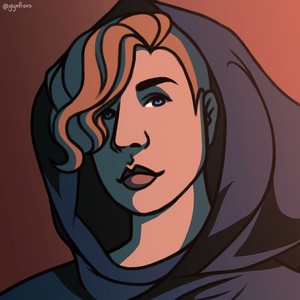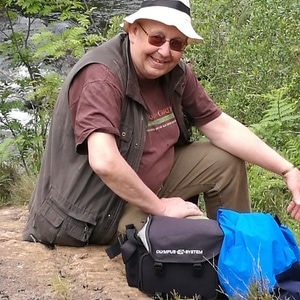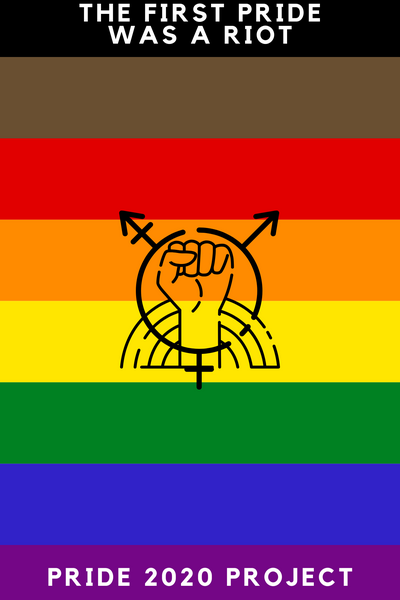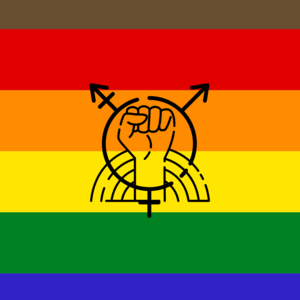Content Warnings: Queerphobia, Eating Disorders, Discussion of Mental Health.
AW Frasier is a Faroese and Danish queer writer, who writes LGBTQ dark fantasy novels. She’s had marked success on Wattpad, where her Feral Series was selected for the initial 40 Paid Stories, and has another series coming out 17th of June called ‘The Saga’. We sat down with Fray to talk about her experiences as a lesbian writer of queer fiction.
Hi Fray! How’s things going over in Denmark?
They’re going pretty good! Copenhagen is waking up after its winter slumber and summer is here. Obviously, it’s gonna be a summer spent with distance between us and no festivals or Pride, but we’re slowly getting back to normal here now after the pandemic. With caution though.
I know you read widely, and you’ve mentioned enjoying the works of Khaled Hosseini, Jennifer L. Armentrout and Emily A. Duncan. What is it about these authors that draws you to their stories?
Hosseini is a magician. He takes you on a journey to Afghanistan where it feels like you’re actually there through his amazing descriptions. You can taste the food, feel the sun in the summers and the biting cold in the winters. The way he writes is art. Simply art.
Armentrout writes popular fiction that is very accessible to everyone. The way she writes opened my eyes to what I wanted to write. She has been a huge inspiration to me – the way she handles tropes, her characters, her worldbuilding. It’s all very easy to read and you can’t help but get swiped up immediately from the first page.
Duncan’s Wicked Saints is basically a gothic acid trip set in a Russian setting. I have no idea what’s going on most of the time, but I’m all there for the ride. I haven’t found anyone who writes gothic fiction like this since Anne Rice. And as a casual goth, this speaks very highly to me.
What drew you towards writing?
I honestly can’t remember. When I was a kid and couldn’t write, I’d make up stories with my toys. When I did learn to write, I put those stories into countless notebooks that I carried around with me everywhere. I’ve always had a very large imagination and not getting any of that out or expressed made me a little crazy, so just to declutter my head, writing helped.
When I grew older, I started having problems socially, so I turned to stories. I could escape into other worlds with magical creatures. Write about everything that went on inside my head that I didn’t understand. I wrote about queer characters before I even admitted to myself, I was queer. I did the same with mental illness. I was diagnosed with different eating disorders, self-harm, depression, anxiety and lastly Evasive Emotional Personality Disorder of the type Borderline. And to get away from all of that, I wrote.
Reading some of my older work back, I can clearly see what I was doing back then, describing my issues socially, issues with controlling my anger and what I said, my issues with understanding the world and the people inhabiting it. All of my stories carry a sort of “outsider looking in” narrative, that I wasn’t even aware of before it was pointed out to me by a friend. It has since made me realise, I’m that outsider. Even as a kid, I was that outsider. My own lens has been often been one of observation, and of one trying to fit in, despite struggling with a lot of social cues. One who questions structures I don’t understand and struggling to understand the explanations of them. And all of that is channelled into my stories.
So more than anything, writing is therapy for me. It’s self-exploration, exploration of the world surrounding me, the people, the social structures. And it’s an escape.
Why do you think it’s important that mental health in the queer community is shown in creative works?
Because we exist in a world that doesn’t accommodate us. We’re more likely to develop mental illnesses than our cis/het counterparts. It’s something we need to address within our community and it’s something the rest of the world needs to address, and they need to acknowledge that with oppression comes struggles.
The mentally ill are also marginalised and being in two groups is just double the struggle. For me personally, I’ve found very little representation that encompasses both of my experiences as someone who is mentally ill and who is queer and how it intersects. And when there is rep those stories always end badly. There is a life with mental illness that is worth living, despite still struggling and that’s what I’m trying to show through my stories most of all. That we are deserving of love and a great life, despite our diagnosis.
Spirits and Crowns is a very unique novel and has been really well-received on Tapas! Can you tell us a little bit about it and the inspiration behind it?
Spirits and Crowns started as a bit of a joke. I promised I’d write a novel centring my love for tall women with lots of tattoos and it took shape after that. I basically wanted to add everything and the kitchen sink, and for the first time, I didn’t stop myself. Write about North Atlantic cultures? Why not? In a 1920s-esque era? Sure! How about some robotic prosthetics and blimps? Hell, let’s just make this Diesel Punk, just for good measure. Oh and also, dragons and magic. Femme gay men who aren’t reduced to a stereotype, butch lesbian women who aren’t the butt of the joke, the intricacies of same-sex couples, the JOYS of same-sex couples. I wanted to make a world where being queer wasn’t a problem and I wanted all the cool things that I love as well.
Would you say that a lot of your works celebrate the beauty in queer culture?
Yes! Especially newer work. I love writing about little communities where they’re all just really queer. When I was younger, I felt like I wasn’t allowed to write big groups of queer people because people would say it was unrealistic and no one would read it. But the fact of the matter is, we do travel in groups. It’s not unrealistic and no one can tell me what I can and can’t write. Now, I really revel in writing strong queer friendships, which are also inspired of the queer friendships I have myself. There’s just another bond and I love exploring and celebrating it in fiction.
You identify as a queer person and a lesbian. How has your identity shaped your work?
Well, obviously they’re all queer as hell. And that’s probably because I am too. But also growing up in a country that wasn’t very progressive 15 years ago as a queer person, definitely pushed me to write more queer-orientated narratives. Especially ones where the main character finds their one true love and live happily ever after. One where they have plenty of queer friends too. I’ve always missed especially having a queer group of friends, so writing about them made that longing a little easier to carry.
What was it like to grow up on the Faroe Islands? A lot of people may be unfamiliar with the area and its history. I know it’s a place of great natural beauty.
It’s beautiful. The cultural heritage is old and very stubbornly holding onto its people. A lot of our traditions are about a century old. Very old Viking traditions.
It’s also a harsh environment to grow up in. I spent my formative years there. It’s hard to talk about, especially in public because I have this love/hate relationship to it. I don’t want anyone to talk trash about it, but I can’t say I enjoyed my time there either. Parts of my family are Inner Mission Scandinavian Lutherans – a very Christian subgroup of churchgoers. My first run-in with systematic homophobia was in 2006 when the laws regarding hate crimes were to include sexuality. There was a hard resistance and I had never experienced such hate before at the age of twelve. I didn’t fully grasp what the issue was because to me it seemed so obvious: everyone should be treated equally and fairly. I was naïve when I thought everyone would agree at a family gathering. I was told by my father on our way home to not bring up such topics because parts of my family didn’t agree, and it was pointless to argue with them. Some still believe same-sex attraction can be cured with prayers and conversion therapy. In church I learned gay people would go to hell, no matter how good of a person they were. And parts of my family agreed with that.
I developed an eating disorder around the age of twelve too. I’ve never thought of that connection until right now, but now I can’t unsee it. Big changes were happening, and people were violently homophobic. I needed control.
I tried to force myself to not be gay. I knew I was into women, but I forced myself to believe I was into men as well. I was so desperate to get out, I moved to Denmark to boarding school when I was fifteen. With this desperation came my first real boyfriend. And it was about that time I also realised I was suffering from blackouts. I had forgotten whole years of my childhood. I’ve also forgotten most of what that relationship was. I know he was abusive and hated the fact that I was openly queer (I identified as bi back then) but I can’t remember much of my teens nor my childhood. Probably also why I like to romanticise my time in the Faroe Islands now as an adult. It wasn’t a good time though. I was bullied, frozen out for being weird and not getting social cues, for being mentally ill and for loving the whole goth and metal scene. I was like a textbook outcast from a bad 00s teen movie.
So despite the Faroe Islands being very beautiful, having a culture I absolutely adore and have used in Spirits and Crowns, it was also a horrible place for a weird queer kid to grow up.
You’ve always expressed how amazing you find the community on Tapas. Has that been your experience everywhere online, or do you still find it difficult to find platforms for your content?
On Tapas it has been absolutely amazing. Nothing but support and awesome readers who’re supporting both me and my stories, almost right from the get -go.
But on other platforms it has been a bit harder. As a marginalised person, writing about marginalised people, there will always be questions and demands to justify my choices. Why do I keep only writing about queer people? Why are the majority mentally ill in some shape or form? Doesn’t it get boring? And this is coming from cis/het authors who never write anything but cis/het. I think the general perception is that we can’t write as diverse narratives, plots and use the exact same tropes as them, and that we always gotta work with the Queer Struggle or Coming Out narratives. But anyone who knows me, knows that’s not really what my stories are about.
Do you think that the general industry, both traditional and online, is opening up to narratives that move outside coming out/queer struggle?
A bit. We’re seeing more and more queer protags in SFF written by queer people where the main focus isn’t that they’re queer. It’s miles ahead of where we were just five-ten years ago, but we still have a long way to go. We’re still seeing heavily problematic stories published by cis/het authors who have all the best intentions but forgets that we’re actual people capable of telling our own stories too. We still have a long way to go. We still have to prove to the publishing industry that we’re worth taking chance on.
What do you think companies, platforms and websites can do to better support their LGBTQ creators?
Promote them as much as they promote cis/het centred stories – and not just during Pride Month. Use us authors for general panels – not just the ones about writing while queer or writing about queer characters. Basically, I want what the cis/het people have.
You are an outspoken advocate for diverse and inclusive LGBTQ fiction. What are more things that you want to see in people’s works?
I want so much more diversity in gender queerness. I want trans, non-binary, genderfluid and gender queer characters right front and centre, and I want my gender queer siblings to be able to tell those stories.
I want more diversity when it comes to queer women’s representation. There are more than lipsticks and butch. I’m neither of those two, and I always feel left out. There’s not a whole lot of lesbians in fiction that are like me – an inbetweener.
And I want intersectionality. I want those disabled, POC, mentally ill, neurodiverse and queer characters to have days in the sun. You can be part of more than one group of minorities.
What is the best thing about being a queer creator?
Discovering the amazing online queer community. Discovering how strong that community is. I absolutely adore my fellow queer creators. So, it’s not one singular experience, it’s the whole experience of being in communities with other creatives like me – who gets me and don’t judge me. Who support me and don’t demand I justify my choices in character-representation.
Being not so good at the whole social thing and finding an online community has been awesome.
It’s also the readers. I’ve had readers from all over the world, also in countries where being queer is outlawed and punishable by death or prison. I hope it helps them feel less alone, seeing themselves represented and actually getting happy endings.












Comments (5)
See all